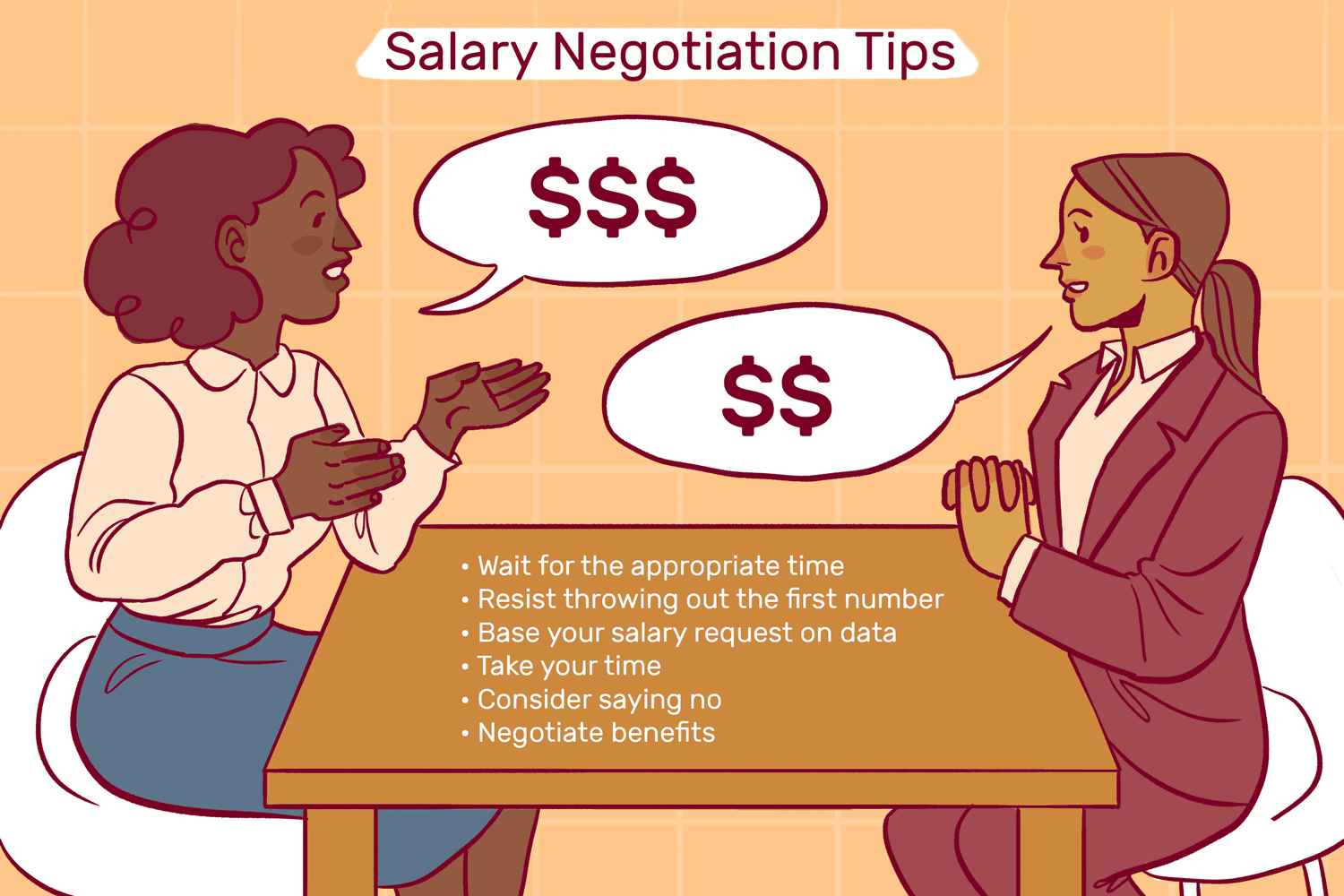Responding To A 'Best And Final' Job Offer: A Negotiation Guide

Table of Contents
Analyze the "Best and Final" Offer Carefully
Before you even consider responding, take your time to thoroughly dissect the offer. Don't rush into a decision. A well-considered response is more likely to be successful than a knee-jerk reaction.
Review Compensation Details
This is the most obvious, but arguably the most important, aspect to scrutinize. Don't just glance at the headline salary figure. Dive deep into the details:
- Salary: Is it competitive with industry standards for your experience and location? Use salary comparison websites like Glassdoor, Salary.com, and Payscale to benchmark your offer.
- Benefits: Carefully review health insurance options (premiums, deductibles, co-pays), retirement plan contributions (401k matching, pension), paid time off (vacation, sick days, holidays), and any other perks offered.
- Bonuses: Understand the structure and potential payout of any bonuses offered. Are they performance-based, sign-on bonuses, or something else?
- Stock Options (if applicable): Assess the value and potential growth of any stock options. Understand the vesting schedule.
- Identify Discrepancies: Compare the written offer letter meticulously against any prior verbal agreements regarding salary or benefits. Note any discrepancies.
Assess Non-Monetary Aspects
Compensation isn't everything. Consider the following crucial non-monetary factors:
- Job Title: Does the title accurately reflect your experience and responsibilities?
- Responsibilities: Does the role align with your career aspirations and provide opportunities for growth?
- Company Culture: Does the company environment seem like a good fit for your personality and work style? Research employee reviews on sites like Glassdoor and Indeed.
- Career Growth Opportunities: Are there clear pathways for advancement within the company? Inquire about mentorship programs or professional development opportunities.
- Work-Life Balance: Consider the expected work hours, flexibility, and overall work-life integration.
Deciding Whether to Negotiate Further
Once you've thoroughly analyzed the offer, you need to decide if you have the leverage to negotiate further.
Weigh Your Leverage
Several factors influence your negotiating power:
- Your Experience and Skills: Are your skills highly sought after? Are you a unique candidate with specialized expertise?
- Job Market: Is the job market competitive for your skillset? A strong job market gives you more leverage.
- Employer's Urgency: How quickly does the company need to fill the position? A desperate employer might be more willing to negotiate.
- Competing Offers: Do you have other job offers? This is a powerful negotiating tool. However, don't lie about having offers you don't possess; it will damage your credibility.
Consider the Potential Risks
Negotiating a "best and final" offer carries inherent risks:
- Burning Bridges: Pushing too hard might damage your relationship with the potential employer, even leading to them rescinding the offer.
- Offer Withdrawal: The employer may be firm on their offer and unwilling to negotiate further.
- Opportunity Cost: Spending too much time negotiating might cause you to miss out on other opportunities.
Strategies for Negotiating a "Best and Final" Offer
If you decide to negotiate, proceed strategically:
Express Gratitude and Restate Your Enthusiasm
Begin your response by expressing sincere appreciation for the offer and reiterating your genuine interest in the position. This sets a positive tone.
Highlight Your Value and Contributions
Focus on the value you bring to the company, not just your needs. Quantify your accomplishments whenever possible. For example, "In my previous role, I increased sales by 15%."
Focus on Specific Areas for Negotiation
Instead of broadly asking for a higher salary, target specific areas where negotiation might be more successful:
- Signing Bonus: A one-time payment to incentivize your acceptance.
- Accelerated Promotion Timeline: If the opportunity for advancement is slow, request a faster track.
- Enhanced Benefits Package: Focus on improving specific benefits like health insurance coverage or retirement plan contributions.
Present a Counter-Offer Strategically
If you counter, be prepared with a well-justified and reasonable counter-offer. Explain your reasoning clearly and professionally. Never make demands; present it as a mutually beneficial arrangement.
Know When to Walk Away
Sometimes, walking away is the best option. Don't be afraid to politely decline if the employer is unwilling to meet your minimum requirements. A poor fit from the start can lead to future dissatisfaction.
Conclusion
Responding to a "best and final" job offer can be daunting, but with careful analysis and a strategic approach, you can still negotiate for a better deal. By thoroughly reviewing the offer, assessing your leverage, and presenting a well-reasoned counter-offer (if appropriate), you can increase your chances of securing a package that reflects your value. Remember, knowing when to walk away is as important as knowing when to negotiate. Don't be afraid to use the skills and knowledge you gained from this guide in responding to a 'best and final' job offer confidently and effectively. Remember to carefully consider all aspects of the offer and use your best judgment in responding to a best and final offer.

Featured Posts
-
 French Cinemas 2025 Rendez Vous A Look At Upcoming Films And Festivals
May 23, 2025
French Cinemas 2025 Rendez Vous A Look At Upcoming Films And Festivals
May 23, 2025 -
 U S Penny Phase Out No More Pennies In Circulation By 2026
May 23, 2025
U S Penny Phase Out No More Pennies In Circulation By 2026
May 23, 2025 -
 First Look Milly Alcock And Meghann Fahy In The Siren Trailer
May 23, 2025
First Look Milly Alcock And Meghann Fahy In The Siren Trailer
May 23, 2025 -
 Michigan Memorial Day 2025 Holiday Hours And Observances
May 23, 2025
Michigan Memorial Day 2025 Holiday Hours And Observances
May 23, 2025 -
 Freddie Flintoffs Car Crash I Wish I D Died He Admits
May 23, 2025
Freddie Flintoffs Car Crash I Wish I D Died He Admits
May 23, 2025
Latest Posts
-
 First Look At Sylvester Stallone In Tulsa King Season 3
May 23, 2025
First Look At Sylvester Stallone In Tulsa King Season 3
May 23, 2025 -
 Child Sex Crimes Case Columbus Man Receives Guilty Verdict
May 23, 2025
Child Sex Crimes Case Columbus Man Receives Guilty Verdict
May 23, 2025 -
 Tulsa King Season 2 Blu Ray Exclusive First Look At Sylvester Stallone
May 23, 2025
Tulsa King Season 2 Blu Ray Exclusive First Look At Sylvester Stallone
May 23, 2025 -
 Columbus Man Found Guilty Child Sex Crimes Verdict
May 23, 2025
Columbus Man Found Guilty Child Sex Crimes Verdict
May 23, 2025 -
 Sylvester Stallone Suits Up For Tulsa King Season 3 First Look
May 23, 2025
Sylvester Stallone Suits Up For Tulsa King Season 3 First Look
May 23, 2025
